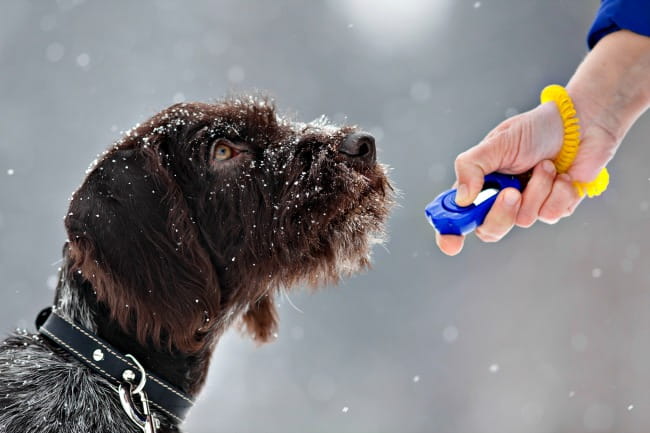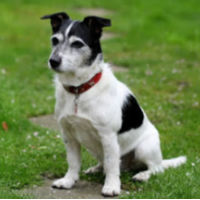FYI: If you buy something through a link on this site I may earn a commission - at NO extra cost to you.
How To Train A Puppy The Right Way
Learning how to train your puppy isn't just about knowing the right commands, or what type of tools or treats to use.
It's also about:
- Teaching your puppy what you expect, and what is acceptable behavior
- Learning to communicate with, and trust, each other
- Understanding how your pup thinks and develops
- Maintaining realistic expectations.
On this page you'll find some simple rules that will help you train
your puppy quickly and easily - and strengthen that special bond between
you at the same time.
- RULE #1: All puppies are different
- RULE #2: Follow basic puppy training principles
- RULE #3: Make it fun!
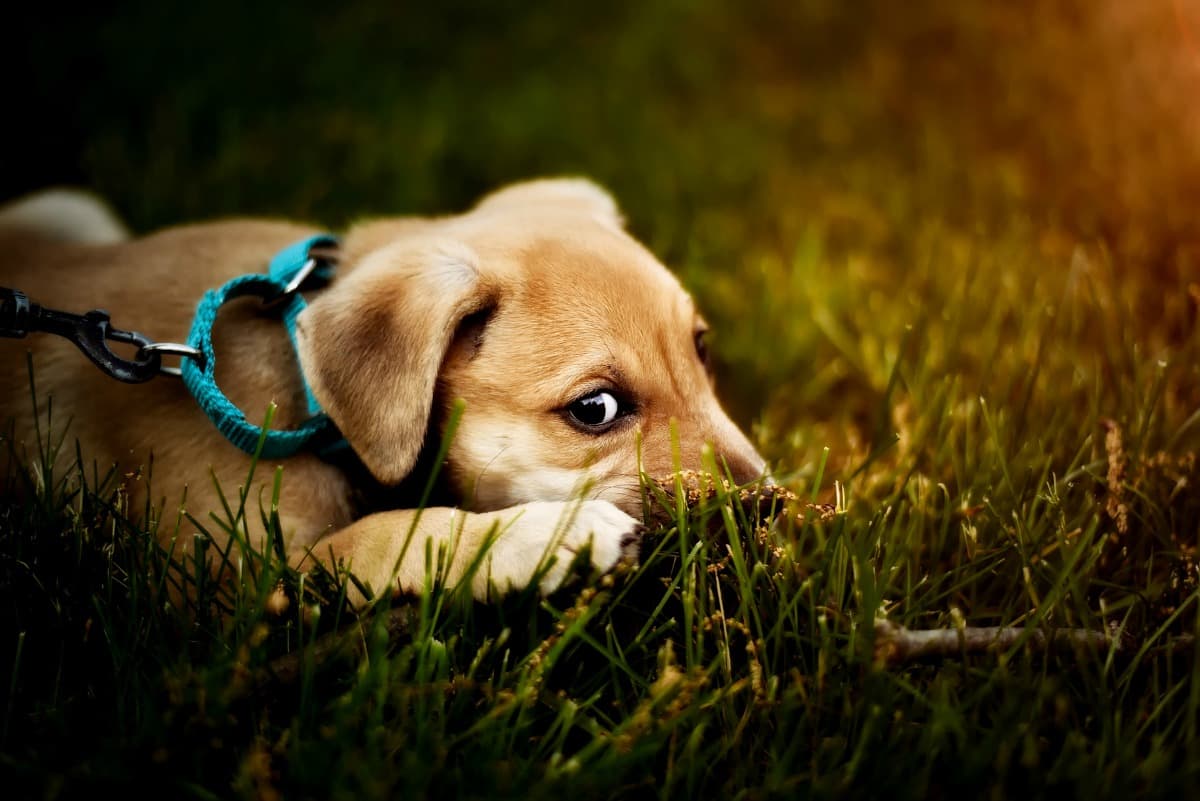
Rule #1 - All Puppies Are Different
This may sound obvious, but it's easy to assume that all puppies and dogs are the same.
And of course they are in a very basic, biological way, but it's important to remember that each individual dog breed was designed with a different purpose in mind, and they will act differently, react differently and learn particular commands at different rates.
Plus each puppy in a litter is a unique individual with his or her own personality, strengths, weaknesses and quirks.

This is important to remember when it comes to figuring out exactly how to train your specific puppy.
Because although the basic principles of puppy training will work for any breed..... your own little furball is an individual and you will need to take some time to learn exactly how he behaves and responds.
The variables are most likely to be:
- How long it takes for him to learn commands
- How keen he is to learn
- How well he responds to your leadership
- His breed specific strengths and traits
It also helps if you and your pup speak the same language.
Dogs communicate mainly through body language and expression, humans are more verbal. Once you learn how to understand your dog his lessons much more successful, and rewarding.
Training is work... but it's also fun... for both of you
Training a puppy takes time, patience and commitment.
You will both be learning new skills and need to be patient with each other.
It won't happen overnight, but if you stick with it and are consistent, your pup will learn what you expect from him and, if you make training a positive experience for him, he'll be eager to please.
Training sessions are a great way to build, and strengthen, the bond between you and your new best friend and a time to have fun together.
Rule #2 - Follow Basic Principles
There's more than one method of puppy training, but the principles are the same....
- Show your puppy the behavior you want
- Help him perform the required behavior
- Reward him when he's successful
If that sounds pretty simple, it's because it IS straightforward!
Whether it's house training, crate training or teaching basic obedience commands, you'll find that your pup is very eager to please you, and that he'll try hard to do what you want.... even though at first he will fail a lot of the time! Just remember that he's a baby and be patient but consistent.
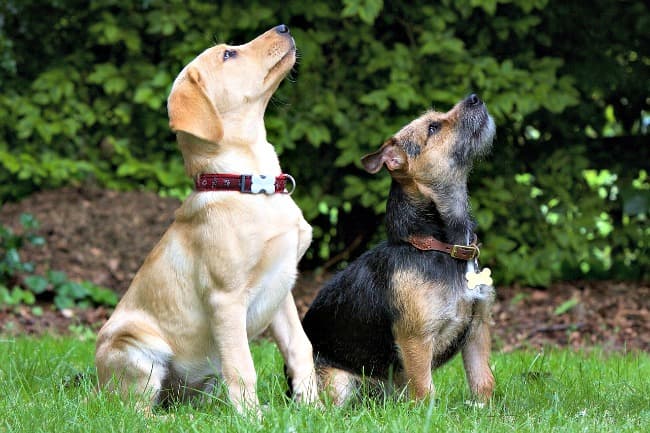
Puppies learn through repetition, but they have very short attention spans, so it's best to have several short training sessions every day (around 3 - 5 minutes each time for an 8 week old pup), rather than one long one.
Otherwise, after a few minutes your little one will get bored and start to lose interest and that's not what you want. Three of these sessions a day works well.
You'll need to be patient, consistent and firm (but always loving). Never punish your puppy if he doesn't do exactly what you want him to, it's up to you to make it clear what you expect. Any kind of physical punishment, even a raised voice is a no-no when training a puppy. You'll only succeed in frightening him and that will lead to training difficulties and stress - for both of you.
Your pup is doing his best to please you, and if you're not being successful, you may need to try another way of explaining what it is you want.
Never use any harsh or punitive methods, puppy training should always be a positive experience and using a rewards-based system gets the best results. Most puppies respond best to food type rewards, but some are more toy motivated, others only crave praise and petting.
As you learn more about your pup and how he learns, you'll discover what motivates him and makes him happy.
Always end a training session on a positive note (ie. when your pup has performed a perfect 'sit' or come running when you call his name). That way your puppy will associate treats and praise with training, and be eager for his next lesson.
You might want to try clicker training as it's a fun way to teach basic commands and even tricks.
formal puppy training classes are important
Once your puppy has completed all his puppy shots you should enroll him in a local dog obedience training school.
You usually start with a 'Puppy Class' where he'll learn basic manners and how to socialize and interact with other puppies of all shapes and sizes!
Attending formal obedience classes has many advantages for both you and your pup.
Socializing your pup properly is important if you want him to grow up to be a dog you can take anywhere, and the qualified instructors will help you to learn how to train your puppy in a way he'll understand and respond to.
If you have any problems or questions there's always someone there who can help you out and point you in the right direction.
Once you've completed your 'Puppy Class' you can both move onto higher level Obedience Classes and your local dog obedience training school will most likely have several options.
They may even offer classes which lead to the Canine Good Citizen certification, agility classes, shutzhund training and more!
Rule #3 - Have Fun!
Training your puppy shouldn't be a chore. The time you spend working with him, and the bond that is built up between you is priceless.
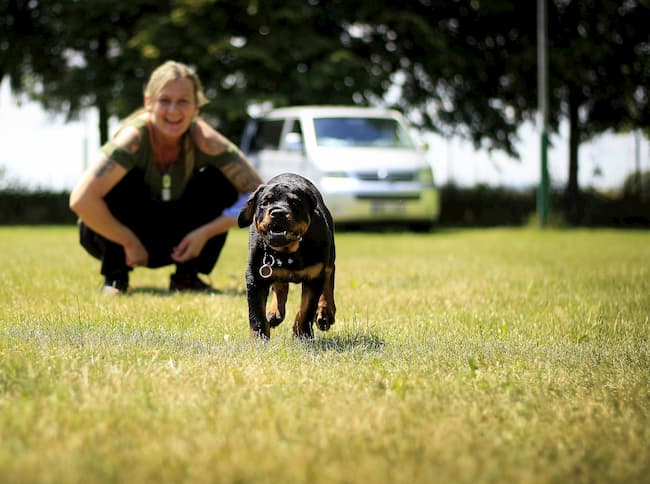
That little baby will grow into an adult dog before you know it, and the lessons you teach him now will stay with him for the rest of his life - be they the right ones or the wrong ones!
Approach puppy training with love, patience and a sense of humor, and make sure you take the time to teach your little one how to behave in a way that will make him a joy to be around for the rest of his life.
I can promise you that the rewards are worth all the time and effort.
If you want to go beyond basic obedience, there are lots of other things you can do with your pup.... make him your jogging partner or your fishing companion, or get him involved in an activity such as agility, flyball, hunting, tracking and so on.
If your pup excels at his lessons and loves people, why not talk to your instructor about training him to be a therapy dog?
The options are many and varied. Whatever you choose to do, whether it goes beyond puppy class or not, just remember to enjoy the time spent with your little one.
you might also like...
- Home
- First Days At Home
- How to Train a Puppy
FTC Disclosure: Some pages on this site contain affiliate links. I may earn on qualified purchases.
